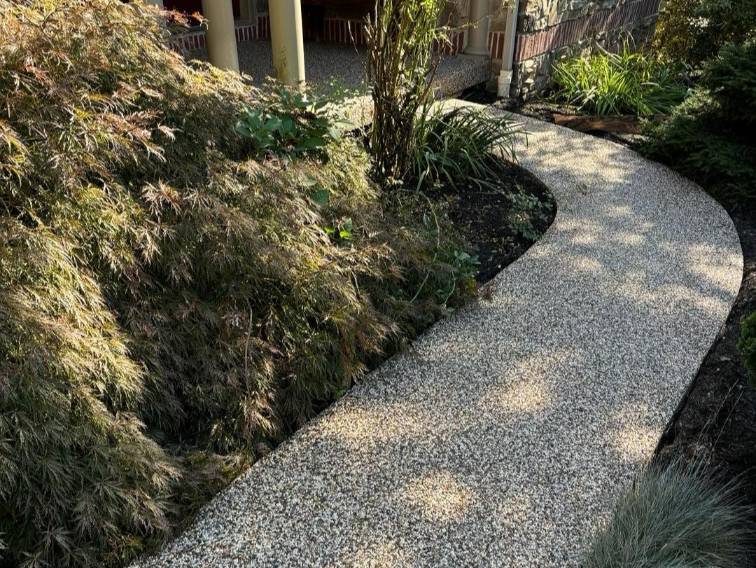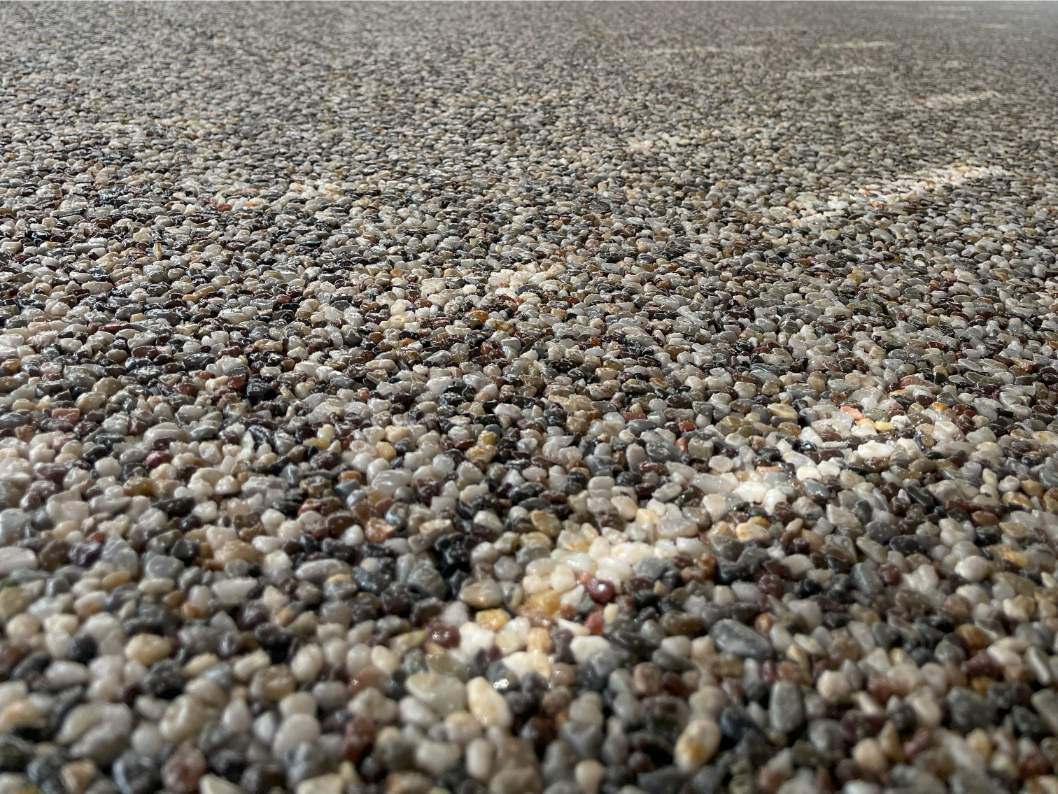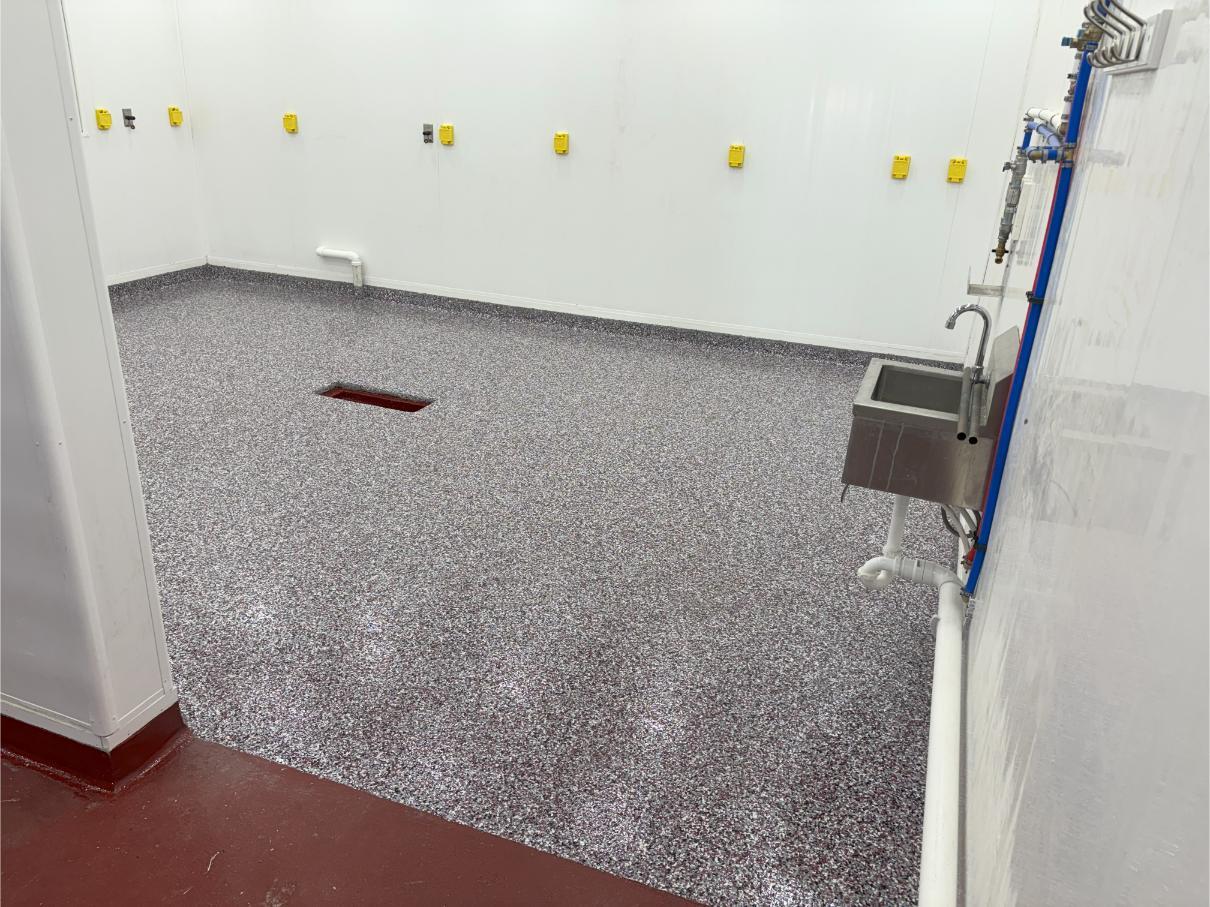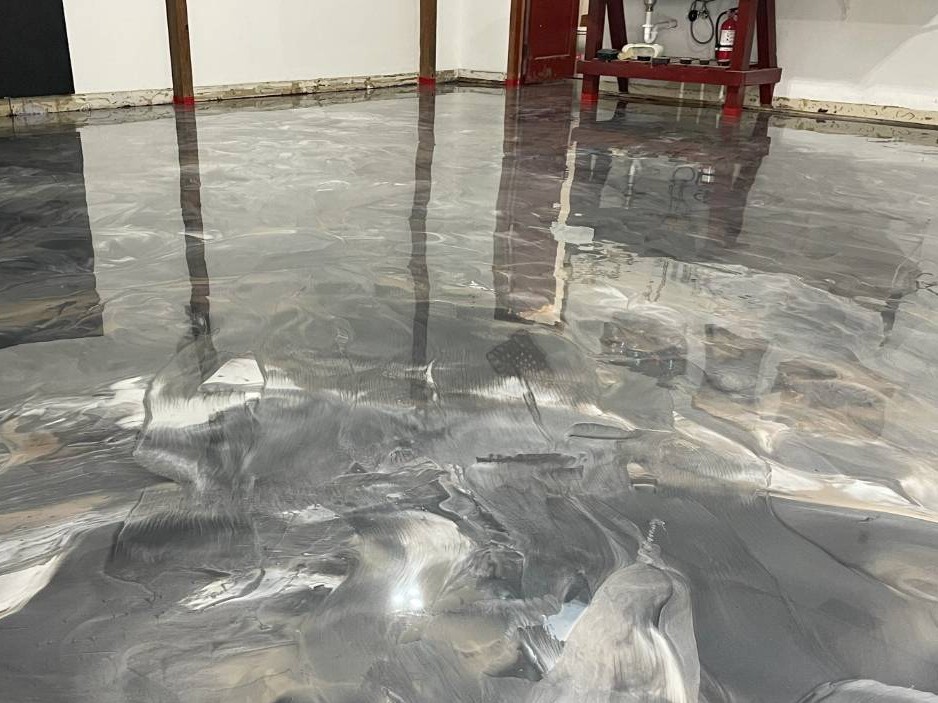You're thinking about doing something with your outdoor concrete. You've considered repouring, painting, repairing, and coating. Is river rock epoxy the right solution for your concrete? Or is there an option that better suits your goals and budget?
Elite Floor Coatings has coated more than 5,000 concrete slabs. Our team offers a variety of epoxy coatings for every type of concrete. River rock is one of our favorite products for outdoor concrete.
When you've finished reading, you'll know if river rock is best for your situation.
Pros Of River Rock Epoxy
River rock (also known as riverstone) has numerous benefits, especially for its outdoor application. When compared to other options for outdoor concrete, river rock stands out. Let's take a look at the pros of river rock epoxy.
1. River Rock Means Concrete Repair Without Repouring.
Damaged concrete often ends up being repoured. River rock can restore the concrete, whether it's a crack or severe deterioration.
River rock coating will only add a half inch to the height of your concrete. It's also self-supporting, not relying on adhesion to the damaged concrete. By adding control seems, we allow for movement, decreasing the chance of cracked concrete causing problems.
%20(Hagerstown).jpg?width=533&height=400&name=River%20Rock%20(Stairs)%20(Hagerstown).jpg)
We can pour the coating as long as we can set up forms for the river rock coating. "If we can form it, we can pour it!" Damaged concrete steps, cracked patios, dilapidated porches–river rock can repair it all.
2. River Rock Does Not Require Heavy Equipment.
Many types of concrete repair require heavy equipment. River rock epoxy does not. Rather than disturbing your landscaping with heavy machinery, we can bring the necessary materials with a wheelbarrow.
3. River Rock Isn’t Affected By Spills.
River rock is unique in that it allows water to pass through it. It's a pervious substance. If water was previously running nearby, river rock won't disturb its path. The half-inch of product doesn't impact running water.
You can also spill outside without needing to worry about cleaning up. The rainwater will wash out whatever you spill.
.jpg?width=533&height=400&name=River%20Rock_Chambersburg%20(2).jpg)
4. River Rock Is Naturally Not Slippery.
Because water runs through river rock, it is naturally not slippery. River rock is also made of organic stones, which makes for a texture similar to an orange peel. However, some color and stone options can be slippery when wet, so we do add anti-skid in those cases.
5. River Rock Should Be More Affordable Than Replacing Concrete.
River rock epoxy costs between $10 and $18 per square foot. Your rate will depend on the size of your project, how much forming is necessary, and its accessibility.
Even at $18 per square foot, river rock will probably be less expensive than replacing the concrete. Especially for raised concrete like a porch or the formed concrete of your steps.
Cons Of River Rock Epoxy
In many ways, river rock epoxy is like a wonder product. However, it is imperfect. There are some drawbacks and considerations to be aware of when choosing river rock. Let's take a look at the cons of river rock epoxy.
1. River Rock Does Require Maintenance.
Every 2 to 4 years, river rock epoxy should be professionally cleaned and glazed. You could clean the river rock yourself, but it is best handled by a professional. Elite Floor Coatings offers a cleaning service for the river rock we've installed. If you opt to clean the river rock yourself, you can powerwash it.
Glazing, however, should usually be left to professionals. This maintenance project usually occurs every 4 years. However, if the river rock is installed in an area with an excessive amount of sun, the glazing will need to happen more frequently.
Since reglazing replaces the epoxy burned away by the sun, river rock installed in a basement or garage would not need to be reglazed.
2. River Rock Has Fewer Color Options.
Unlike some outdoor concrete epoxies, river rock has very limited options for colors and customization. The material is natural stone, which makes for very neutral grays and browns. The color cannot be adjusted in the same way as other epoxy coatings.

You can purchase fancier stones to acquire more color options. However, nonstandard stones are much more expensive than standard river rock stones. Custom stones can quickly drive up the price of river rock epoxy.
3. River Rock Isn’t Holding Things Together.
River rock, like all epoxy coatings, adheres to and bonds with concrete. However, this adhesion doesn’t hold the concrete together. You can think of river rock like painting drywall. If your drywall cracked, the paint won’t prevent the crack from happening.
We recommend using larger pebbles when there's a large crack in your concrete. There is a risk of the crack showing through the coating, and larger pebbles will help to obscure the visual of the concrete crack.
.jpg?width=300&height=400&name=River%20Rock_Chambersburg%20(3).jpg)
What To Know About River Rock Epoxy Coatings
River rock is a versatile product for outdoor concrete. It doesn't require heavy equipment to install, and it isn't more expensive than repouring existing concrete. It can even work around areas of damage and deterioration in outdoor concrete. However, river rock does require some consistent maintenance and has limited visual options.
Want to learn more about epoxy floors? Check out these resources next.
.png?width=1800&height=528&name=Elite%20Floor%20Coatings%20Header%20Logo%20With%20White%20Background%20(1).png)





